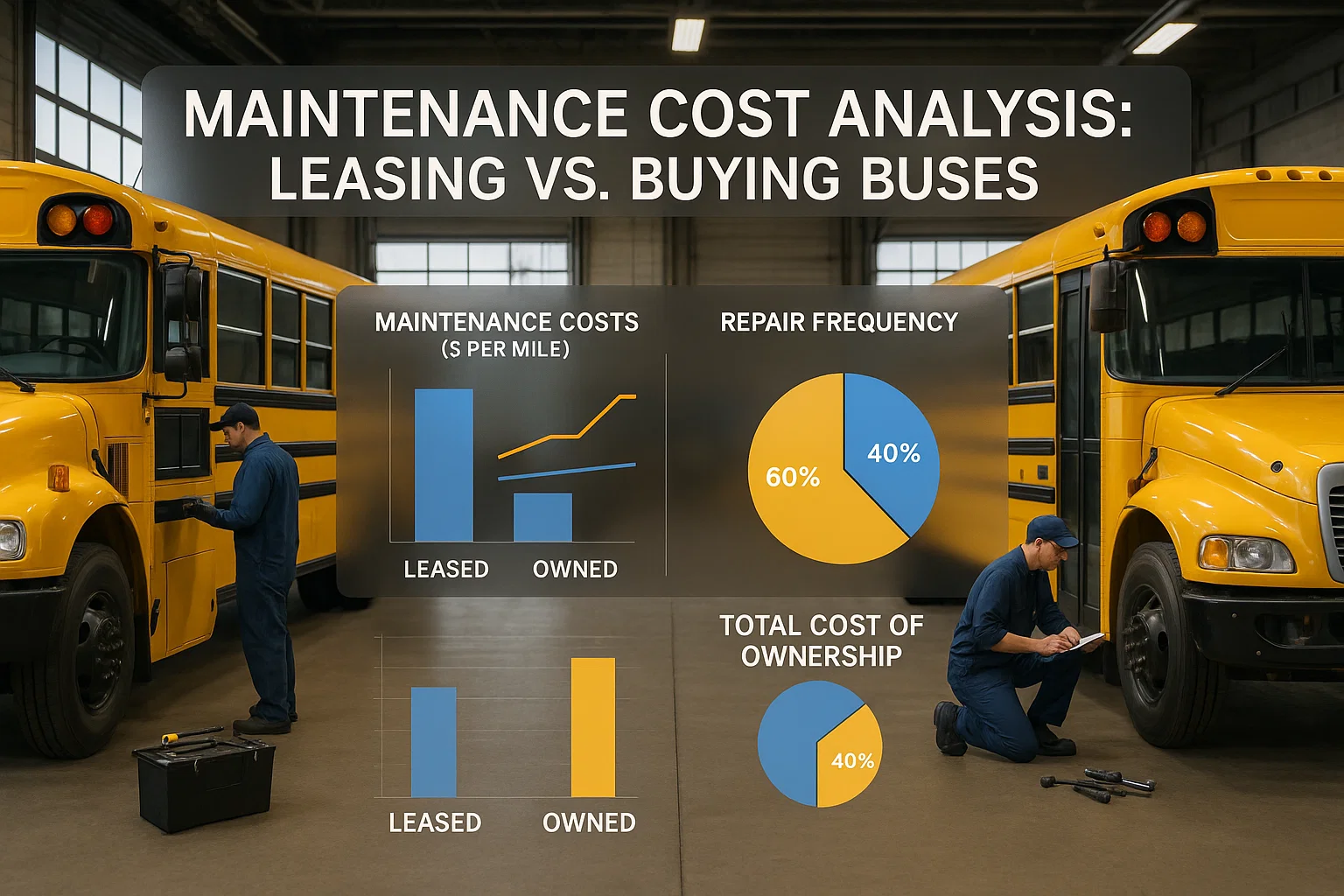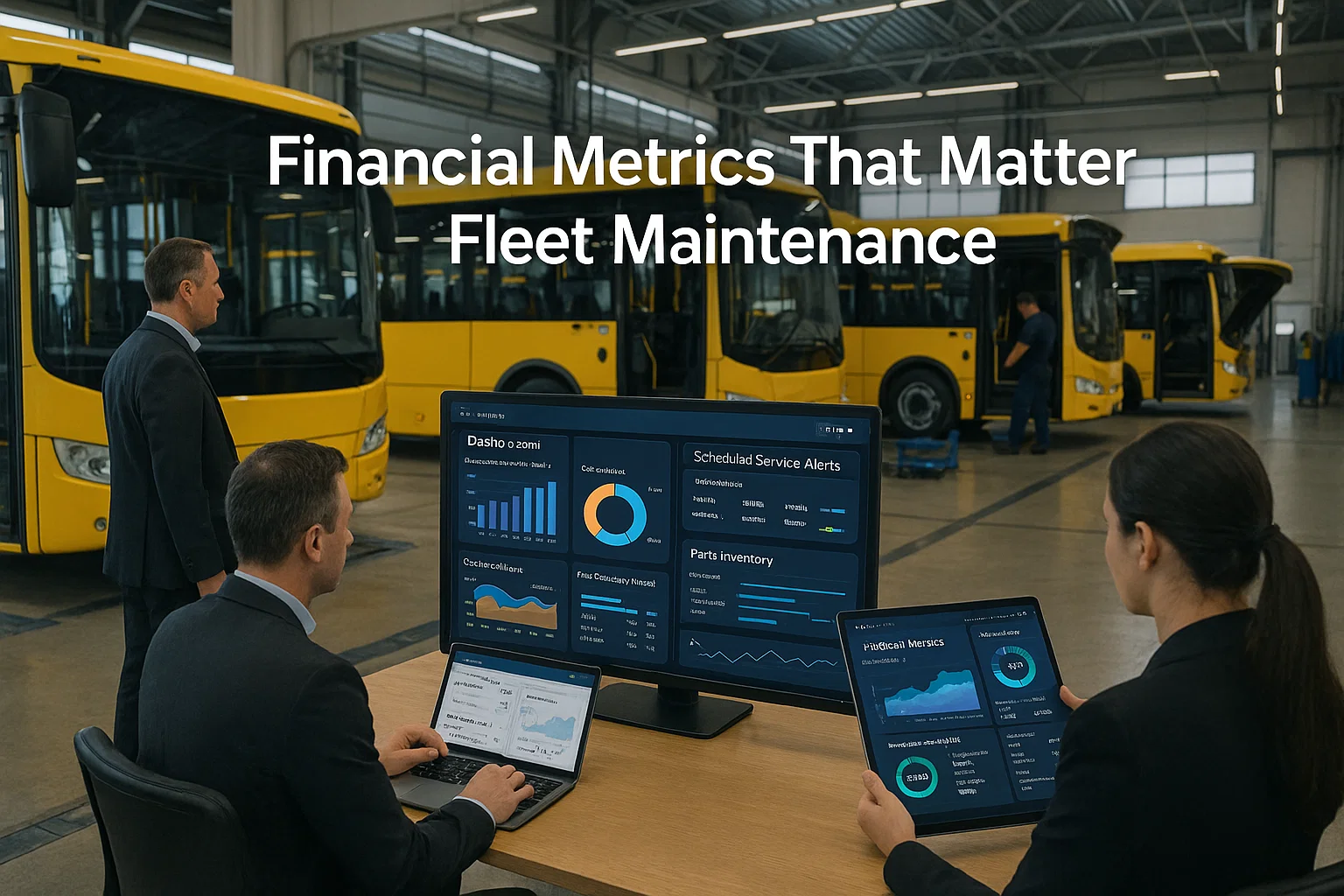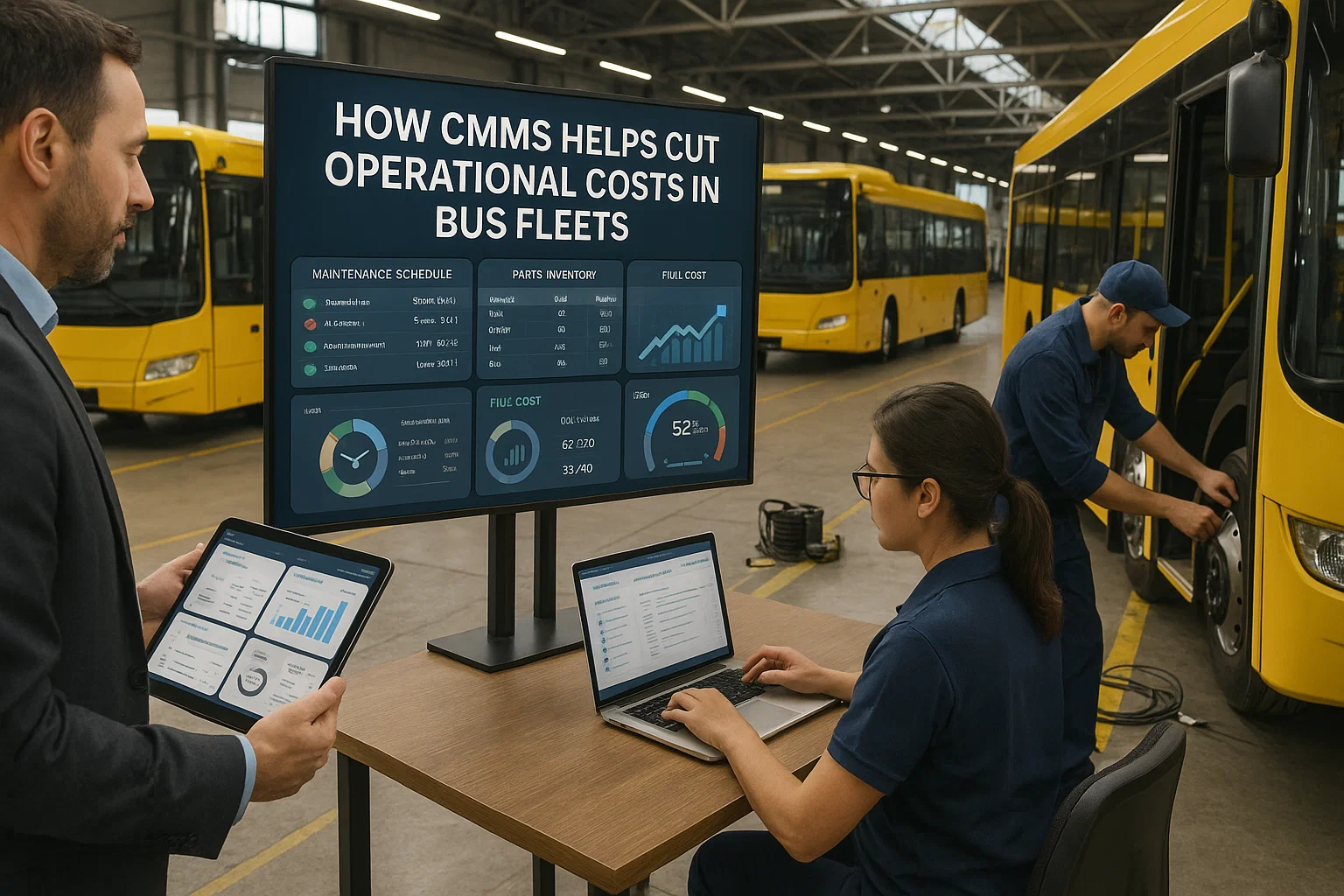Real-time fuel monitoring has revolutionized fleet management operations across the United States, transforming how transit agencies track, analyze, and optimize fuel consumption. In an era where fuel costs represent up to 40% of operational expenses, the ability to monitor fuel usage in real-time provides unprecedented opportunities for cost reduction and efficiency improvements.
Modern fleet managers leveraging Bus CMMS platforms with integrated fuel monitoring capabilities report average fuel savings of 15-25% within the first year of implementation. These systems combine telematics data, GPS tracking, and advanced analytics to provide comprehensive insights into fuel consumption patterns, driver behavior, and vehicle performance metrics.
The evolution from manual fuel tracking to sophisticated real-time monitoring through Bus CMMS represents a paradigm shift in fleet management. Transit agencies now have access to instantaneous data on fuel levels, consumption rates, idling time, and route efficiency, enabling proactive decision-making that directly impacts the bottom line.
Core Components of Real-Time Fuel Monitoring Systems
Understanding the technological architecture behind real-time fuel monitoring enables fleet managers to maximize system benefits and ensure optimal implementation. Modern Bus CMMS platforms integrate multiple data sources to create comprehensive fuel management ecosystems.
Telematics Integration
Advanced telematics devices capture real-time data from vehicle ECUs, including fuel flow rates, engine parameters, and diagnostic trouble codes. Bus CMMS systems process this data to identify inefficiencies and provide actionable insights for immediate intervention.
GPS and Route Analytics
Location-based tracking combined with fuel consumption data reveals route-specific efficiency metrics. Fleet managers using Bus CMMS can identify high-consumption routes, optimize scheduling, and implement alternative routing strategies to reduce fuel usage.
Driver Behavior Monitoring
Real-time monitoring captures driver actions that impact fuel efficiency, including aggressive acceleration, excessive idling, and speed violations. Integrated coaching modules within Bus CMMS platforms enable targeted training interventions based on individual performance metrics.
Critical Fuel Waste Indicators
Real-Time Alerts for Immediate Action
- Excessive Idling: Alerts when vehicles idle beyond predetermined thresholds, typically consuming 0.5-1 gallon per hour
- Fuel Theft Detection: Sudden drops in fuel levels outside of normal consumption patterns trigger immediate notifications
- Route Deviations: Unauthorized route changes that increase mileage and fuel consumption
- Maintenance-Related Inefficiencies: Engine performance issues causing increased fuel consumption
Implementing real-time alerts through Bus CMMS enables fleet managers to address fuel waste immediately rather than discovering issues during monthly reviews. This proactive approach prevents small inefficiencies from becoming significant cost drains.
Fuel Efficiency Optimization Strategies
Real-time monitoring data serves as the foundation for comprehensive fuel optimization programs. Bus CMMS platforms transform raw data into actionable strategies that reduce consumption while maintaining service quality.
Data-Driven Maintenance Scheduling
Engine Performance Optimization
Monitor fuel trim values, oxygen sensor readings, and injection timing to maintain peak combustion efficiency
Tire Pressure Management
Real-time TPMS integration ensures optimal tire pressure, reducing rolling resistance and fuel consumption by up to 3%
Air Filter Monitoring
Track differential pressure across air filters to schedule replacements at optimal intervals, maintaining engine breathing efficiency
Predictive Analytics Implementation
Advanced algorithms within Bus CMMS analyze historical fuel consumption patterns to predict future needs and identify anomalies before they impact operations. Machine learning models continuously refine predictions based on seasonal variations, route changes, and vehicle aging patterns.
Advanced Analytics and Reporting Features
Modern Bus CMMS platforms provide sophisticated analytics capabilities that transform fuel monitoring data into strategic insights. Real-time dashboards present complex data in intuitive formats, enabling quick decision-making at all organizational levels.
Key Performance Metrics
- Miles Per Gallon (MPG) Trending: Real-time MPG calculations with historical comparisons and peer benchmarking
- Cost Per Mile Analysis: Comprehensive fuel cost tracking integrated with maintenance and operational expenses
- Carbon Footprint Monitoring: Emissions calculations based on fuel consumption for sustainability reporting
- Driver Scorecards: Individual performance metrics comparing fuel efficiency across the fleet
Integration with Fleet Operations
Successful real-time fuel monitoring requires seamless integration with existing fleet management processes. Bus CMMS platforms serve as central hubs, connecting fuel data with maintenance schedules, route planning, and driver management systems.
Automated Fuel Purchasing
Integration with fuel card systems through Bus CMMS enables automated reconciliation of purchases with actual consumption data. Discrepancies trigger alerts for investigation, preventing fraud and ensuring accurate cost tracking.
Route Optimization Algorithms
Real-time fuel data feeds into route optimization engines within Bus CMMS, continuously adjusting schedules based on traffic patterns, weather conditions, and vehicle-specific fuel efficiency metrics. This dynamic approach reduces overall fleet fuel consumption by 10-15%.
Frequently Asked Questions
How does Bus CMMS enhance real-time fuel monitoring capabilities?
Bus CMMS revolutionizes fuel monitoring by integrating multiple data streams into a unified platform that provides instant visibility into fuel consumption patterns. The system combines telematics data, GPS tracking, maintenance records, and driver behavior metrics to create comprehensive fuel efficiency profiles for each vehicle. Advanced analytics identify waste patterns, predict future consumption, and automatically generate optimization recommendations. Fleet managers gain access to customizable dashboards showing real-time MPG, idle time percentages, and route efficiency scores, enabling immediate corrective actions that typically result in 15-25% fuel savings.
What makes Bus CMMS superior to standalone fuel monitoring systems?
Bus CMMS excels by providing an integrated approach that connects fuel monitoring with all aspects of fleet operations. Unlike standalone systems, Bus CMMS correlates fuel consumption with maintenance history, identifying vehicles that consume excess fuel due to mechanical issues. The platform's predictive analytics forecast when components affecting fuel efficiency need service, preventing gradual efficiency losses. Additionally, Bus CMMS includes driver coaching modules that translate fuel data into personalized improvement plans, comprehensive reporting for regulatory compliance, and automated alerts that enable proactive management rather than reactive responses to fuel waste.
Implementation Best Practices
Critical Success Factors
- Data Quality Assurance: Establish protocols for validating telematics data accuracy and addressing sensor failures
- Staff Training Programs: Comprehensive education on system features and data interpretation for all stakeholders
- Change Management: Gradual rollout with pilot programs to ensure organizational buy-in
- Performance Benchmarking: Establish baseline metrics before implementation to measure improvement accurately
Successful implementation of real-time fuel monitoring through Bus CMMS requires commitment to data-driven decision-making and organizational change. Fleet managers must champion the technology while ensuring proper training and support for all users.
ROI and Cost Justification
Investment in real-time fuel monitoring through Bus CMMS delivers measurable returns that extend beyond direct fuel savings. Comprehensive ROI calculations must consider multiple benefit streams to accurately assess system value.
Quantifiable Benefits
- Direct Fuel Savings: 15-25% reduction in fuel costs through efficiency improvements and waste elimination
- Maintenance Cost Reduction: 20% decrease in fuel-related maintenance issues through predictive analytics
- Operational Efficiency: 30% improvement in route optimization leading to reduced mileage and fuel consumption
- Compliance Benefits: Automated reporting saves 40+ hours monthly in administrative tasks
Future Trends in Fuel Monitoring Technology
The evolution of real-time fuel monitoring continues as new technologies emerge and integrate with Bus CMMS platforms. Fleet managers must stay informed about advancing capabilities to maintain competitive advantages.
Artificial Intelligence Integration
Machine learning algorithms within Bus CMMS increasingly predict fuel consumption patterns with greater accuracy, identifying subtle inefficiencies that human analysis might miss. AI-powered recommendations adapt to specific fleet characteristics and operational patterns.
Alternative Fuel Monitoring
As fleets transition to electric, hydrogen, and other alternative fuels, Bus CMMS platforms evolve to monitor energy consumption across multiple fuel types. Unified dashboards compare efficiency metrics regardless of propulsion technology.
Maximizing Fleet Efficiency Through Real-Time Monitoring
Real-time fuel monitoring represents a critical capability for modern fleet managers facing pressure to reduce costs while maintaining service quality. The integration of comprehensive monitoring tools through Bus CMMS platforms provides the visibility, analytics, and control necessary to optimize fuel consumption across entire fleet operations.
Success in fuel management requires more than technology implementation—it demands organizational commitment to data-driven decision-making and continuous improvement. Fleet managers who embrace real-time monitoring through Bus CMMS position their organizations for long-term success in an increasingly competitive and environmentally conscious transportation landscape.
Ready to Transform Your Fuel Management Strategy?
Discover how Bus CMMS can revolutionize your fleet's fuel efficiency with advanced real-time monitoring and analytics capabilities.








